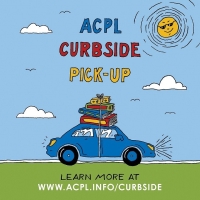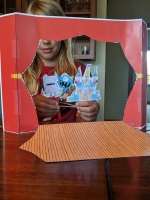Reimagining Libraries in the Age of COVID-19
Allen County Public Library, Ind.
Innovation Synopsis
Following Governor Holcomb’s order to “hunker down, Hoosiers,” ACPL developed new methods of providing resources and access to the community. This included promoting existing and developing new virtual resources and programs, instituting a phased approach to reopening to staff and the public and restructuring the popular Summer Learning Program.
Challenge/Opportunity
ACPL closed its buildings on March 25, 2020, leaving staff unsure how to provide access to the library’s collection, programs or technology. The library as a gathering space for our community now worked against us in the face of a public health crisis. How would we keep staff and the public safe? These challenges provided ACPL staff with the freedom to innovate. The need for action allowed us to throw off the restraints of “we’ve never done this before” and “that’s not how libraries function” and create new service models.
Key Elements of Innovation
- Virtual programs for all ages
- Virtual Library, increased limits for digital resources
- E-library cards offered to access digital resources
- Community survey to assess needs, concerns
- Phased approach to reopening
- Curbside delivery offered for holds, doubled holds limit
- Computer use by reservation in underserved areas
- Touchless technology at all self-checkout stations
- Keyboard and mouse covers for public computers
- Summer Learning Program transitioned to Take & Go Programs and virtual presentation
Achieved Outcomes
- Public pivot to virtual programs: 448 offered to 18,301 participants (April 1-August 31)
- Increased access to virtual resources: 2,010 e-library cards processed (March 16-September 27)
- 7,000+ responses to community survey guiding reopening strategy
- 34,914 curbside transactions with 135,310 items checked out (May 11-August 31)
- 1,700 computer sessions by reservation in underserved areas (June 8-July 3)
- 3,700 SLP programs distributed weekly to library users and community orgs (June 1-August 31)


